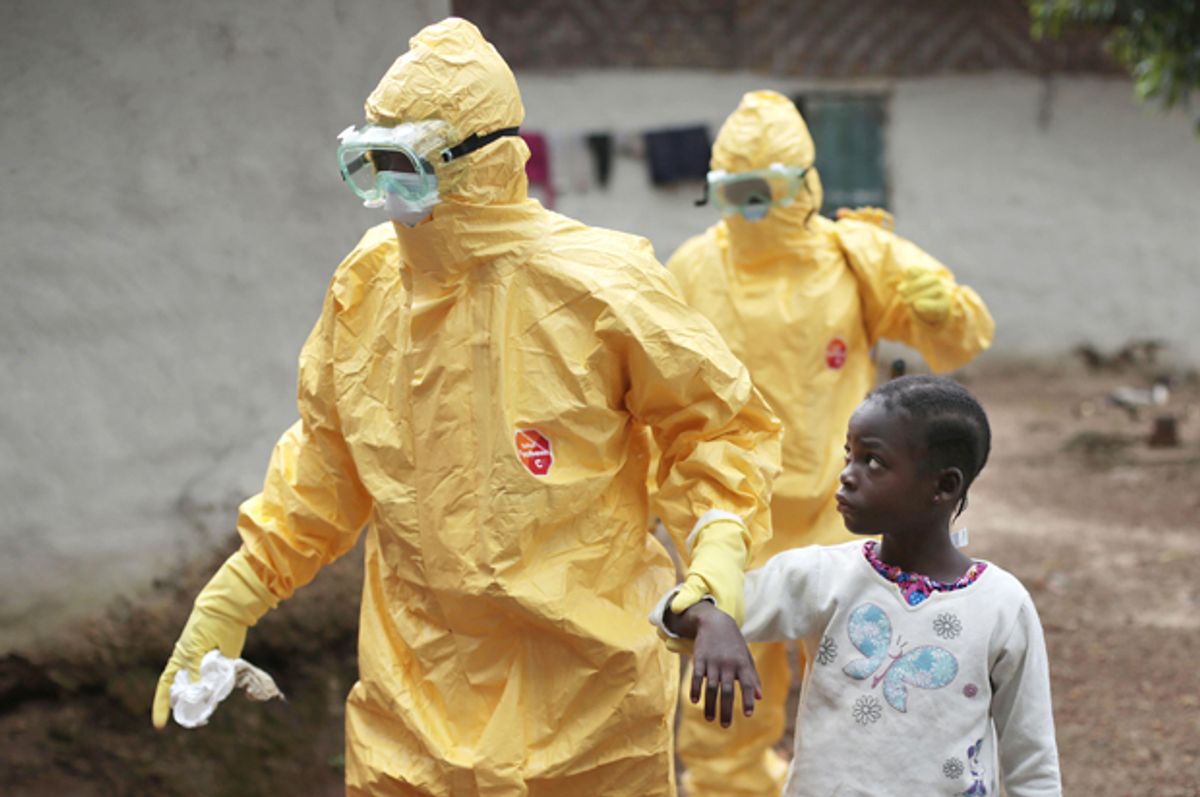Dr. Marc Siegel is, as you’ve probably already guessed, a medical doctor, but he’s also a pundit – an almost unbelievably bad pundit. Dr. Siegel is a member of something called “the Fox News Medical A-Team,” and in his capacity as a pundit for the conservative media, he’s often called upon to lend his medical expertise to garbage right-wing attacks on health policy and health care reform. His big problem with the Affordable Care Act is that “too many people have health insurance,” and he also seems to believe that the law will somehow empower the Post Office to kill your father.
This morning he took his analytical talents to National Review and wrote an article advocating that the U.S. impose a ban on travel from countries affected by the Ebola epidemic. That in and of itself isn’t all that remarkable – many conservatives and Republicans have been pushing for just such a ban, even though it’s an awful policy idea that will likely just make the Ebola problem worse.
But here’s the interesting part: Dr. Siegel knows that it’s an awful policy, and he acknowledges that it’s almost certainly going to backfire and make a lot more people sick. He wants to do it anyway, though, because it will “patch our battered national psyche.”
Sadly, it has reached the point where we will not feel safe unless we ban travel to and from Liberia, Sierra Leone, and Guinea. The reason this is a sad moment is that there is a good chance it could interfere with the flow of health care and resources to and from these countries. Not only that, but, historically, when a country suffering from a growing epidemic has felt cut off from the rest of the world, the fear quotient has risen, and people afraid of the contagion have attempted to flee. Unfortunately, when people hastily attempt to escape imposed restrictions, they tend to take fewer precautions, which increases their chances of catching the dreaded disease.
But first and foremost, although we are members of the world health community, we must worry about our own public psyche here in the United States. If our leaders can’t give us a sense that we are protected, we must achieve it by imposing a ban.
So here we have a doctor – a medical doctor – arguing that our first and most important responsibility is not the physical health of people in West Africa, but rather our own bruised self-esteem. He's advocating a policy that he acknowledges will increase the chances of people contracting a deadly disease in countries that are ill-equipped to deal with the emergency, simply because America has wet its pants needs a bit of a pick-me-up.
“I realize this isn’t strictly a medical argument,” Siegel writes, adopting the most highly sanitized description of his position possible. It’s actually the precise opposite of a “medical argument” – it’s conscious advocacy on behalf of exacerbating a medical catastrophe. He’s espousing a curious reinterpretation of medical bioethics: “First do no harm; except when we’re scared and the people getting hurt are all the way over in Africa.”
It’s one thing to be in the grips of Ebola panic and make bad decisions out of fear of the disease, and quite another to advocate making a bad decision with the full knowledge of how bad it is simply because of its shallow appeal to the public’s irrational terror.

Shares